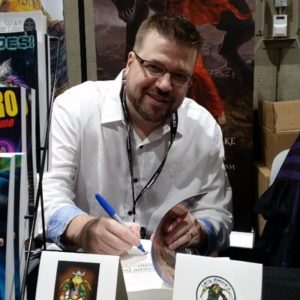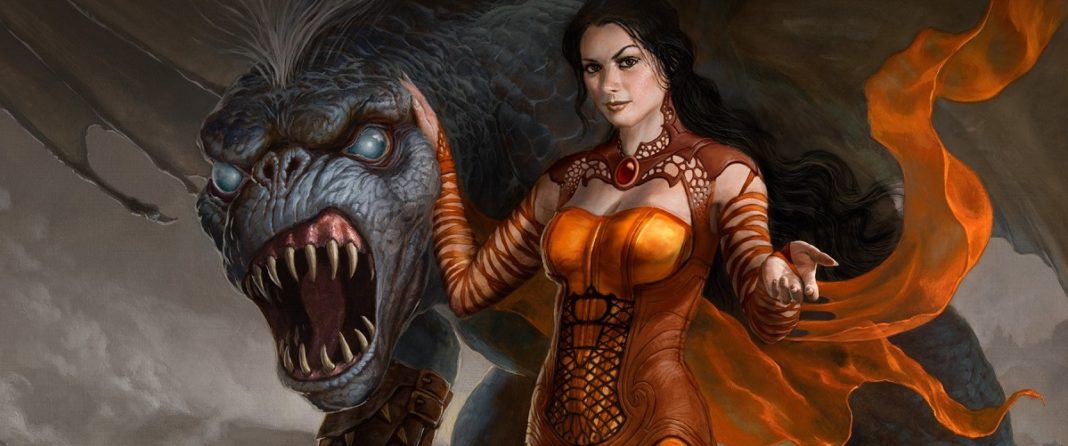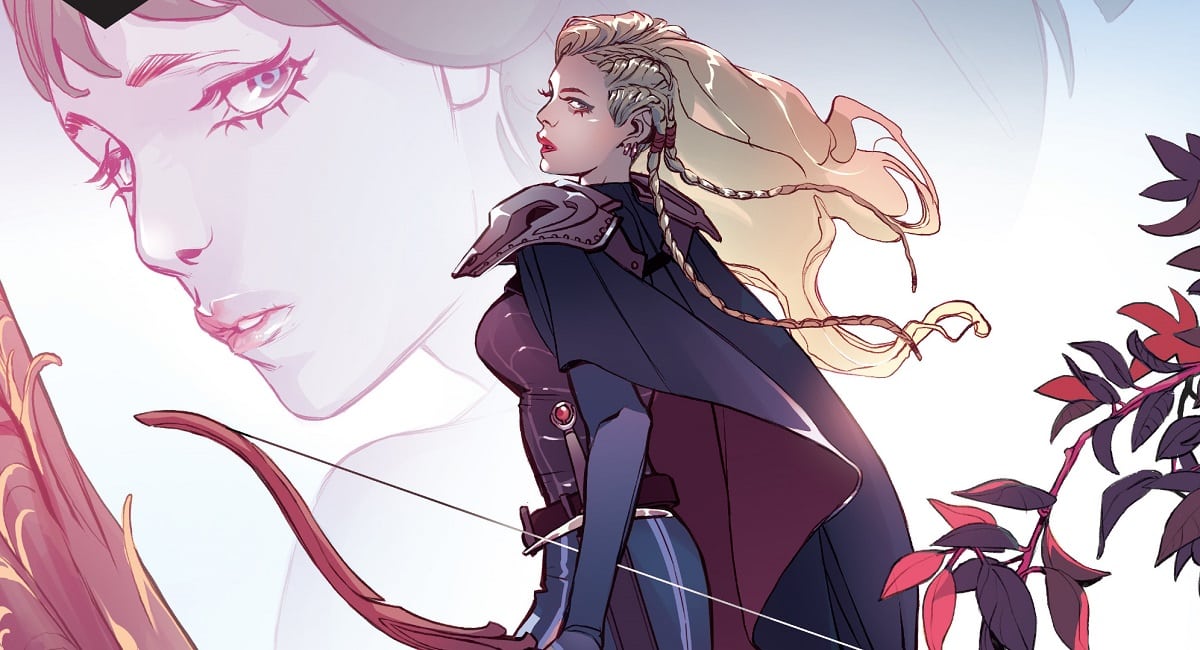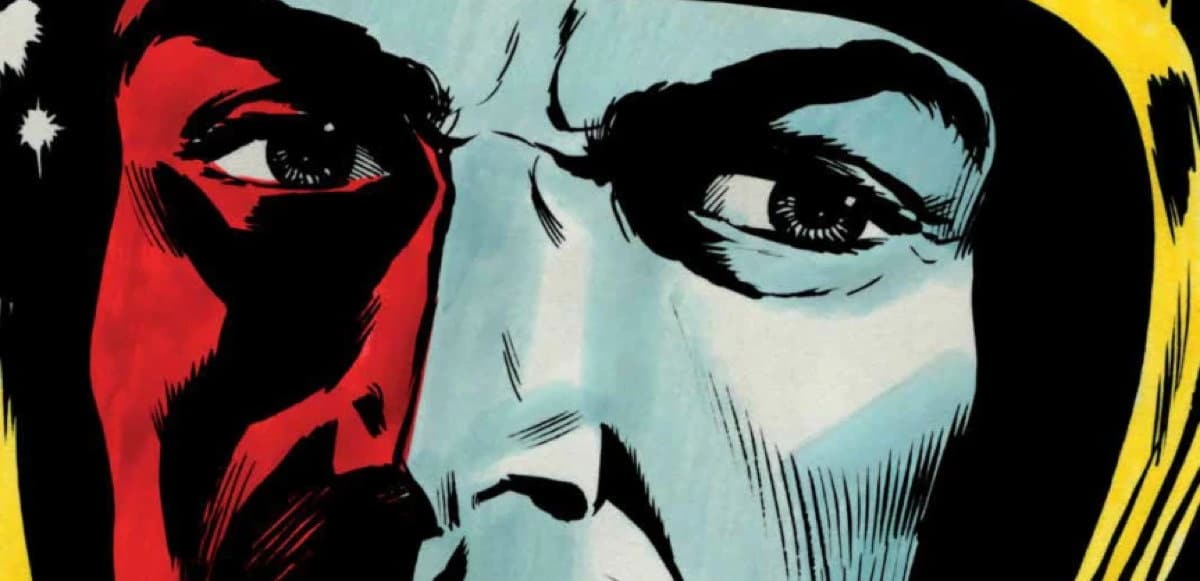
The Beat caught up with Drake at his SDCC ’19 booth to discuss his affinity for teaching and what makes a great storyteller.
Louie Hlad: You’ve got two books out about novel writing, and you hosted three Comic-Con panels this year for aspiring/current writers… How long have you been teaching writing skills and what made you initially decide to start doing it?
Maxwell Alexander Drake: I’ve been teaching creative writing for about 12 years now at book festivals, writer’s conferences, colleges, high schools, and fan events around the world. And honestly, I never thought I’d be teaching writing anywhere. Heck, I never thought I’d be a professional writer, either. I’m actually dyslexic, and the highest level of English I’ve ever taken is remedial 9th grade English. And even though I’m now invited to lecture at universities, I’ve never actually attended one as a student. And I think that’s why my teachings resonate with aspiring writers so deeply.
Academia has an odd way of teaching creative writing. They keep it all mysterious and mystical. Like they want to make it so confusing that they remain the smartest people on the subject. But if you are there to learn the craft, you don’t want it to be mystical. You want it to be presented in a way that’s easy to understand. And that’s always been my main driving force. When you leave one of my classes, or read one of my books on writing, you’ll be able to not only understand the topic, but apply it into your own writing immediately. Why else would you want to take a writing class?
Hlad: So how exactly did you go from remedial English to world-traveling writing teacher? How did you learn the craft yourself, well enough to teach it with authority?
Drake: Isn’t that the rub? Actually, I think that’s WHY people love how I teach. I’ve always been a storyteller. I wrote my first novel when I was 12. A wonderful tale titled “The Warlord’s Dust” that no one will ever read because, well, it was written by a 12 year-old. But that passion for storytelling never left me. And dyslexic doesn’t mean stupid, as my 3rd grade teacher, Mrs. Johnson, used to call me. It simply means my brain works differently from you “normals.” So I spent the next 20 years really diving into the craft of writing and grammar. But not from the perspective of most other people.
You see, I feel the biggest issue with most writers is they “think” they can write. They think that because they can speak English, they can write creatively. But that’s not the case. Speaking English and writing creatively is about as similar as speaking French is from writing Japanese. They are completely different languages. So, unlike most, I entered this KNOWING I knew nothing. I took nothing for granted, and was open to learning everything. But I also had to break it down further than that. I had to take these complex topics and rework them so my dyslexic brain could understand them.
The crazy thing is, that’s what I teach. Everyone who comes to my classes or reads my books on writing say the same thing. “Wow! For the first time I really understand!!” But the joke’s on them. They are simply learning this complex stuff at a dyslexic level. Welcome to remedial English! But it works. Not just for me, but for the tens of thousands who have studied under me. Take that, academia!
Hlad: What bad habits do you tend to see crop up repeatedly in the writers you’ve worked with? What areas of improvement bring the most dramatic results?
Drake: The biggest issue all writers have, and I do mean ALL writers — amateur, self-published, and professional — is with telling rather than showing their story. And this stems from thinking you can write the way you speak. When we verbally tell a story, we do just that — tell! And all of us have been “telling” stories since we could talk. But in prose you should paint a picture that allows the reader’s mind to fall into. To become immersed within. It’s definitely the hardest thing to learn, but it’s what separates the really amazing writers from everyone else.
Hlad: What makes a great writer? Do you think anyone at all can do it, or is it a calling that only a few are truly equipped to pull off?
Drake: The way you worded your question is not how I see this crazy job I do. So allow me to indulge a bit. Writing and storytelling are two different animals. Unfortunately, I think most people see them as the same thing and this gets them into trouble. Starting with writing, yes, I think anyone can do it. Most can’t, but that’s because they aren’t willing to put in the time and effort. That, or like I’ve already said, they think they can write the way they talk. But writing isn’t a talent. It’s a skill. If a dyslexic, uneducated slob like me can do it, anyone can do it. All it takes is time, effort, and a willingness to learn. Grammar sucks, but it’s literally what you must master in order to be a great novelist.
The talent comes on the side of being a storyteller. And that’s something I think you either have or you don’t. Not that you can’t improve as you progress throughout your career. You can learn story structure and theory — in fact, learning that stuff is a must! And that stuff is the skill side of storytelling. But the true talent lies in knowing when to juke or jive during the story. When to baby your audience and when to turn up the heat. Knowing how to be dramatic and when… that’s the talent of storytelling. And while it’s a shame, not everyone has the talent to be a great storyteller. Unfortunately, you must master both sides if you want the classification of “great” in my eyes.
Hlad: What projects do you have coming up that you’re most excited about?
Drake: I have several irons in the fire that I’m really excited about. I sold a kid’s movie last year that has a very good chance of being greenlit before the end of the year. Now, I already sold the script, so my job is basically done. Still, it’s very exciting to me. I’m back into my big fantasy novel series that’s been on hiatus for nearly six years now. That’s going to make the fans of that series VERY happy. Still a ton of work to do on it. But it’s moving forward again.
I think what I’m most excited about is a crazy adult cartoon I’ve been working on for the past year and a half. I like to describe it as a cross between South Park and Game of Thrones, but that’s just to paint a picture. It isn’t really anything like either. But it’s funny as hell, and has a huge amount of interest so far, so fingers crossed.
Need brutal writing advice? You can find all of Drake’s online resources and publications at Drake U.








